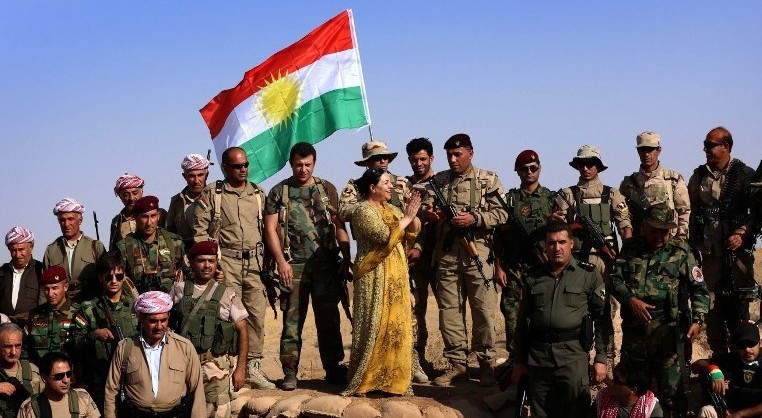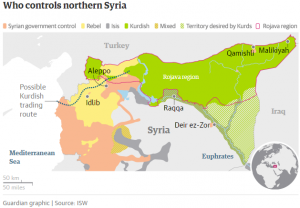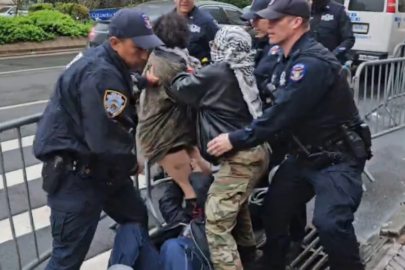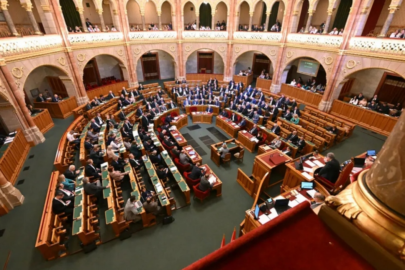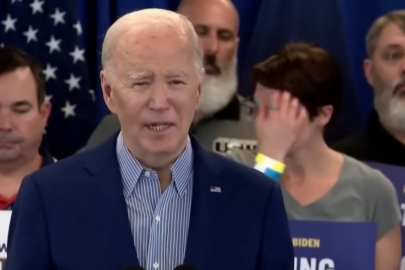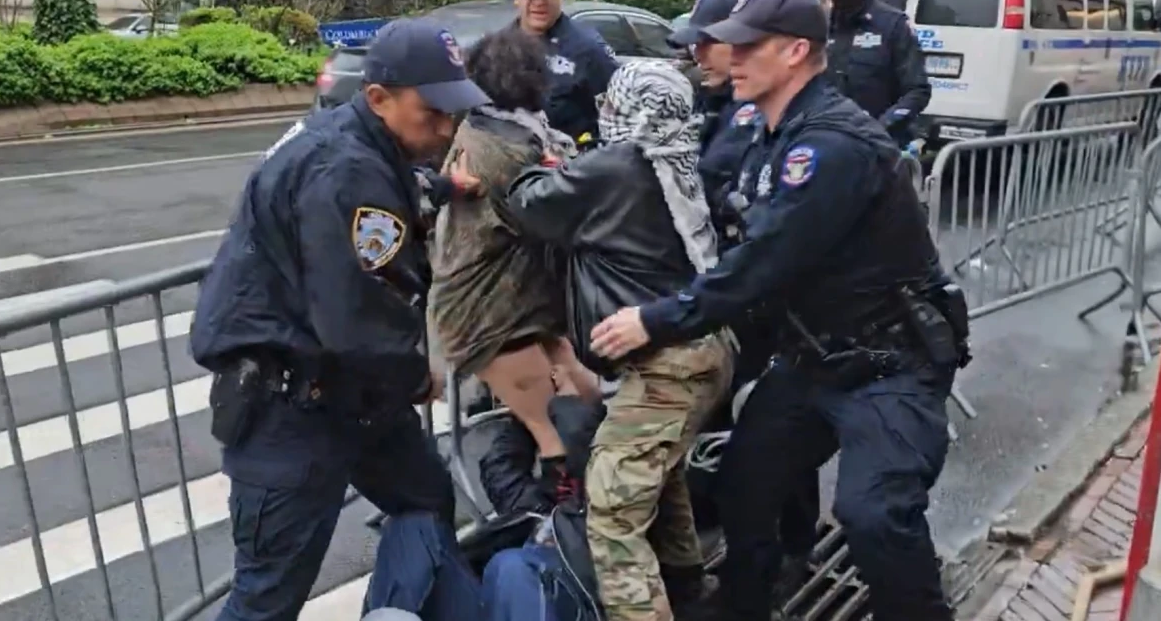Syria’s Kurds have revealed plans to redraw the northern part of the country by linking the Kurdish region of Rojava with the Mediterranean Sea, in a move that will infuriate neighbouring Turkey.
In a further sign of growing Kurdish confidence in Syria’s north, officials say that they plan to ask the US for political support in creating a trade corridor to the Mediterranean as part of a deal for their role in liberating Raqqa and other cities from Islamic State (Isis).
Senior figures have also indicated that the Syria Democratic Forces (SDF), a 50,000-strong collection of fighters dominated by the YPJ Kurdish militia and a crucial US partner in its offensive against Isis, is preparing to occupy Raqqa after eradicating Isis before pushing deeper into Arab territory, along the Euphrates valley, and seizing the city of Deir ez–Zor from the extremist group.
In another startling development, an official even revealed it was possible that SDF forces might eventually push west to liberate the city of Idlib, 170km west of Raqqa, and currently controlled by a coalition of Islamists and jihadis including the former al-Qaida affiliate Nusra Front. Hediya Yousef, in charge of the federalism project for the self-declared autonomous “democratic federation of north Syria”, which has expanded from the Kurdish region of Rojava to include considerable Arab territory, told the Observer: “Arriving at the Mediterranean Sea is in our project for northern Syria, it’s a legal right for us to reach the Mediterranean.”
When asked if that meant asking the US for its political backing to achieve a trading route to the sea once they had helped eradicate Isis from north Syria, Yousef said: “Of course.”
Speaking in the Syrian city of Malikiyah near to where recent Turkish airstrikes struck Kurdish targets, killing 20 fighters of the People’s Protection Units (YPJ), Yousef added: “If we arrive at the Mediterranean it will solve many of the problems of the population in northern Syria, everyone will benefit.”
Opening the region to international trading routes would significantly empower northern Syria, circumventing the existing blockade on Rojava caused by the closed border with Turkey and tensions with Iraq.
But the plans will outrage Turkey, which has already invaded Syria to prevent the Kurds extending their territory along the entire Turkish border.
Yet following the recent Turkish airstrikes, hundreds of US forces moved through Rojava to the Turkish border, a dramatic show of solidarity with the Kurds that has stoked tensions between Washington and Ankara. On Wednesday a senior aide to the Turkish president, Recep Tayyip Erdoğan, suggested American troops could be targeted alongside their Kurdish allies – a warning that has done nothing to dilute Washington’s view that the Kurds are an indispensable ally in the imminent battle to liberate the Isis stronghold of Raqqa.
The Mediterranean lies about 100km from the westernmost edge of Kurdish-held land and the plan would require an agreement with the Syrian regime, although the YPJ and Syria’s president, Bashar al-Assad, have come to deals on issues such as the airport at Qamishli, which remains under Syrian army control despite being deep inside Kurdish territory. Any deal would require the agreement of Russia, Assad’s staunch ally, which recently deployed ground forces to Kurdish-held terriory to work with the YPJ. Russia’s influence in Syria was again highlighted on Friday when President Vladimir Putin unveiled no-fly zones for Russian, Turkish, Iranian and US militaries in order to protect safe zones for civilians on the ground.
The SDF’s liberation of Raqqa and Deir ez-Zor along the Euphrates would extend territory controlled by the autonomous federation of north Syria to almost a third of the country, compared with the 16% that was governed by the federation of Rojava.
Yousef said that the population of Raqqa would be given a referendum asking if it wanted the SDF, which contains Arab and Assyrian Christian militia, to form a government following the defeat of Isis.
“The people in Deir ez-Zor and Raqqa want the SDF to come; in truth the SDF consists of people from these areas,” she said. Already it seems that the SDF is being prepared to stay in control of Raqqa. The Observer witnessed Kurdish and Arab police officers being trained in the town of Mabrouka, Syria, specifically to patrol Raqqa after its liberation. Sources also said that SDF fighters were already as close as 10km from Deir ez-Zor, the biggest Isis stronghold in Syria once Raqqa is liberated. Regarding Idlib, which lies 55km from the Mediterranean, Yousef said any offensive would “depend on events”. “If we clear all this area [north-east Syria] from terrorists, then maybe we will go to the other side to also clear that area. Idlib is occupied by Jabhat al-Nusra [Nusra Front], who are on the list of terrorists. ”
A spokesman for the US State Department said that Syria’s future should be made by the Syrians themselves, reiterating Washington’s position as not recognising “any unilaterally declared self-rule semi-autonomous zone”.

